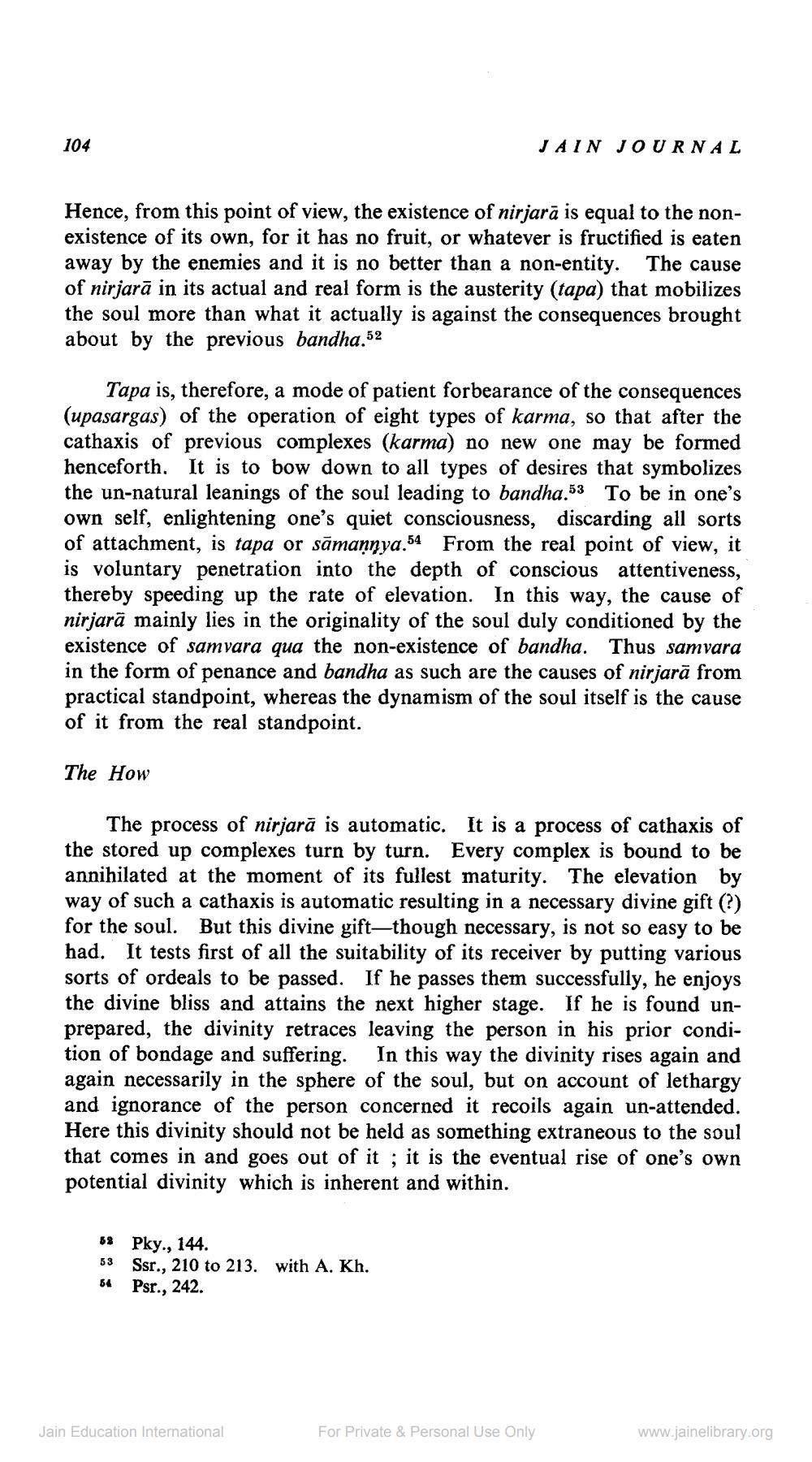________________
104
JAIN JOURNAL
Hence, from this point of view, the existence of nirjarā is equal to the nonexistence of its own, for it has no fruit, or whatever is fructified is eaten away by the enemies and it is no better than a non-entity. The cause of nirjarā in its actual and real form is the austerity (tapa) that mobilizes the soul more than what it actually is against the consequences brought about by the previous bandha.52
Tapa is, therefore, a mode of patient forbearance of the consequences (upasargas) of the operation of eight types of karma, so that after the cathaxis of previous complexes (karma) no new one may be formed henceforth. It is to bow down to all types of desires that symbolizes the un-natural leanings of the soul leading to bandha.53 To be in one's own self, enlightening one's quiet consciousness, discarding all sorts of attachment, is tapa or sāmaŋŋya.54 From the real point of view, it is voluntary penetration into the depth of conscious attentiveness, thereby speeding up the rate of elevation. In this way, the cause of nirjarā mainly lies in the originality of the soul duly conditioned by the existence of samvara qua the non-existence of bandha. Thus samvara in the form of penance and bandha as such are the causes of nirjarā from practical standpoint, whereas the dynamism of the soul itself is the cause of it from the real standpoint.
The How
The process of nirjarā is automatic. It is a process of cathaxis of the stored up complexes turn by turn. Every complex is boun annihilated at the moment of its fullest maturity. The elevation by way of such a cathaxis is automatic resulting in a necessary divine gift (?) for the soul. But this divine gift—though necessary, is not so easy to be had. It tests first of all the suitability of its receiver by putting various sorts of ordeals to be passed. If he passes them successfully, he enjoys the divine bliss and attains the next higher stage. If he is found unprepared, the divinity retraces leaving the person in his prior condition of bondage and suffering. In this way the divinity rises again and again necessarily in the sphere of the soul, but on account of lethargy and ignorance of the person concerned it recoils again un-attended. Here this divinity should not be held as something extraneous to the soul that comes in and goes out of it ; it is the eventual rise of one's own potential divinity which is inherent and within.
68 53
Pky., 144. Ssr., 210 to 213. with A. Kh. Psr., 242.
Jain Education International
For Private & Personal Use Only
www.jainelibrary.org




